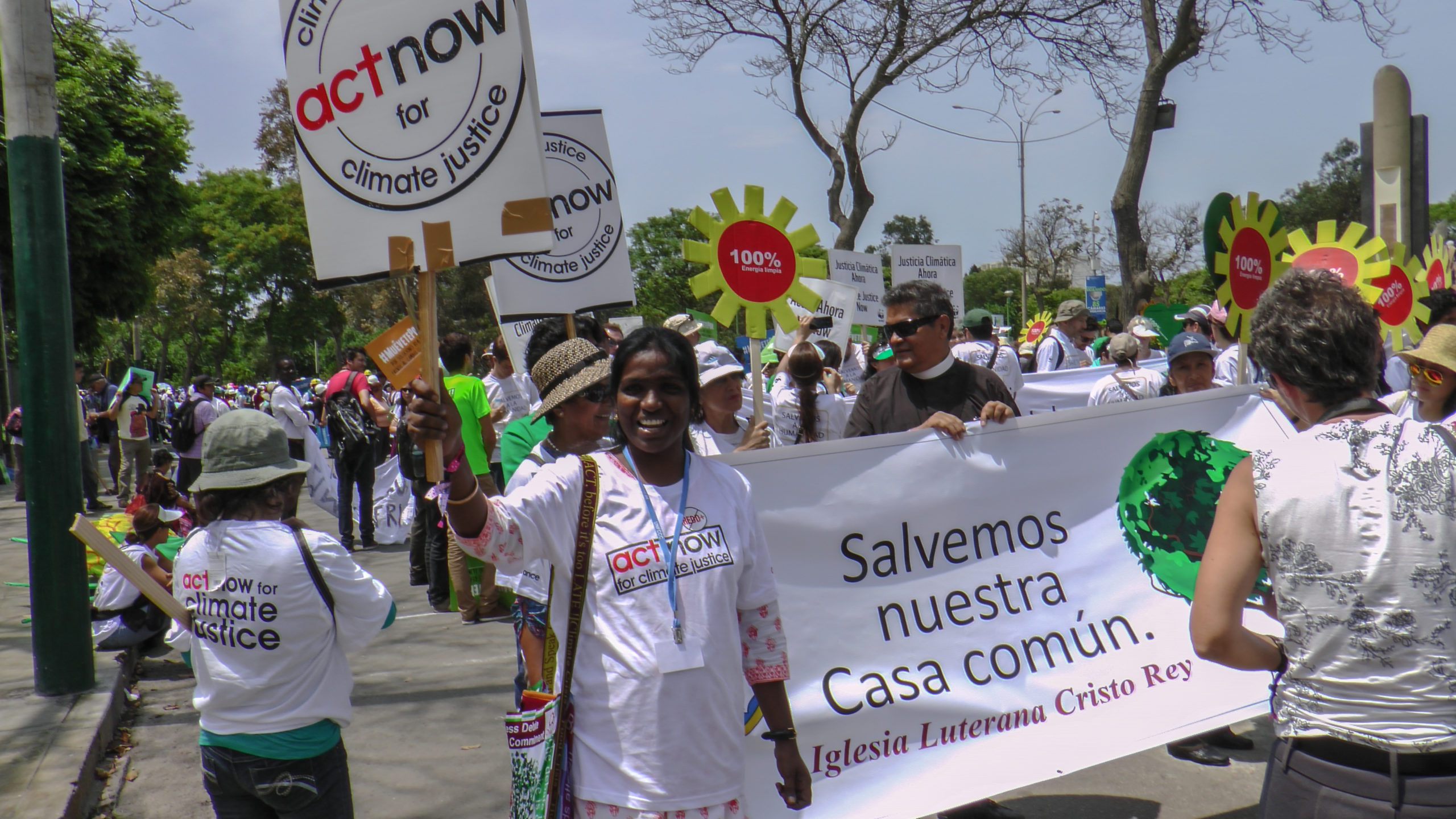“This is not about climate. It’s about our life, our future. And you are destroying our future.” Steve Private, an Indigenous youth from Peru, is making a powerful challenge to participants in ACT Alliance’s May 2021 Latin America and the Caribbean (LAC) Multi-Stakeholder Dialogue on climate change. “We must change our approach in how we address the climate.” The series of dialogues was initiated by ACT Alliance in Latin America and the Caribbean (ACT Alliance LAC) in collaboration with the LWF (Lutheran World Federation) Action for Justice – Climate Justice unit.

“We started this approach 4 or 5 years ago,” says Carlos Rauda, ACT Alliance LAC’s Regional Representative. “ACT and LWF had invited climate justice experts from the region to share scientific knowledge on topics like greenhouse gasses with the LAC forums.” At that first training the experts pointed to the power of churches’ advocacy, based on moral authority and strong community connections. “They said that churches could raise their voices and tell leaders how they are failing us,” says Carlos. The scientists and academics offered to share their knowledge with ACT Alliance LAC members.
Four virtual sessions
“Churches and faith-based organizations are deeply committed to climate justice in the region,” says Elena Cedillo, LWF’s Action for Justice Program Executive, who coordinated the dialogues with ACT LAC. “During this process they agreed on the next steps for advocacy at the national and regional levels. Working together is the only way to tackle the climate impacts.”
“Dialogues to Increase Climate Action,” as they were called, were designed to meet members’ common desire to move from knowledge to action. The first dialogue was open to all interested ACT members and drew 150 participants. Participating forums included Cuba, Peru, Brazil, El Salvador, Honduras, the Dominican Republic and Argentina. In the second dialogue 60 people met by country with experts to identify and discuss key issues. In the third dialogue 70 participants, including many churches and faith-based organizations, explored the national forums’ common issues and regional synergies. The fourth dialogue took place a month later with 80 participants who reviewed their plans with scientific experts.
Action results
In the final dialogue the forums committed to specific country actions to be completed before November’s COP 26. ACT El Salvador Forum members will meet with their country’s COP 26 climate negotiators to discuss the negotiators’ agenda on financial loss and damage. The impact of climate change on migration and food security are also important to the forum and the region. ACT Peru Forum members will lobby their government to incorporate biodiversity in its Amazon restoration strategy and protect environmental activists.
Finally, dialogue participants will develop a regional plan next year which will include advocacy, capacity building and dialogues on climate justice with academics and research centres.